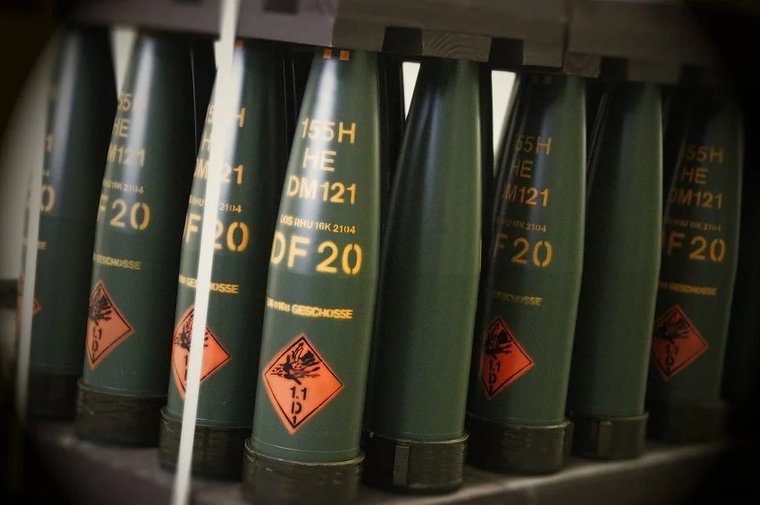Rheinmetall starts work on a new Lithuanian artillery factory
Details
More Products & Services
Products & Services
Defence Insight
Shephard Media
Some of the things people like you use Defence Insight for:
- Total addressable market sizing ($)
- Competitor analysis
- Cost analysis
- Market forecasting
- Growth identification
- Increasing closing ratio
- Increasing closing order value
- Estimating product potential
- Calculating sales forecasting
- Supply and demand analysis
- Total addressable market sizing ($)
- Competitor analysis
- Cost analysis
- Market forecasting
- Growth identification
- Increasing closing ratio
- Increasing closing order value
- Estimating product potential
- Calculating sales forecasting
- Supply and demand analysis
Shephard Plus Update
Shephard Media
Shephard Plus is updating in June 2018 with rich new capabilities, and is now one of the most cost-effective and valuable aerospace and defence market intell...
Military Unmanned Systems Handbook
Shephard Media
The Military Unmanned Systems Handbook (Digital Download) is an international guide to the military UV industry and provides detailed information on air, ground and sea (surface & sub-sea) vehicles as well as subsystems. What's included: Unencrypted 390+ page PDF of equipment and supplier information Market summary
Description
Construction work has begun on a new ammunition plant in Lithuania led by German company Rheinmetall, which will eventually be making tens of thousands of 155mm calibre artillery shells per year.
The facility is the result of €180 million (US$190 million) investment and operations will begin from mid-2026.
Rheinmetall has been developing substantially greater ammunition and shell manufacturing capability since as far back as 2022 when it purchased Spain's Expal Systems.
Related Articles
Rheinmetall hands over more Marder infantry fighting vehicles to Ukraine
Canada places $231 million order for 85 Rheinmetall HX trucks
It has also begun the production of artillery shells in Queensland, Australia and is establishing a vehicle joint venture in Ukraine.
Since Russia's invasion of Ukraine, Rheinmetall has received orders for billions of dollars for 120mm and155mm artillery shells, 35mm munitions and 60mm, 81mm and 120mm calibre mortar rounds.
Prime Minister of Lithuania Ingrida Šimonytė said: “Our defence needs, the importance of the shortest possible supply chains, and strong allied partnership between Lithuania and Germany underscore the need to maintain the momentum.”
Lithuania's Minister of the Economy and Innovation Aušrinė Armonaitė said the development was vitally important to the country's national security in the light of ongoing wars and demands for ammunition.
“By fostering large-scale investment projects and enabling local production of weaponry, we not only address national security needs but also reduce our dependence on arms procured from international markets,” Armonaitė said.
The facility is the result of €180 million (US$190 million) investment and operations will begin from mid-2026.
Rheinmetall has been developing substantially greater ammunition and shell manufacturing capability since as far back as 2022 when it purchased Spain's Expal Systems.
Related Articles
Rheinmetall hands over more Marder infantry fighting vehicles to Ukraine
Canada places $231 million order for 85 Rheinmetall HX trucks
It has also begun the production of artillery shells in Queensland, Australia and is establishing a vehicle joint venture in Ukraine.
Since Russia's invasion of Ukraine, Rheinmetall has received orders for billions of dollars for 120mm and155mm artillery shells, 35mm munitions and 60mm, 81mm and 120mm calibre mortar rounds.
Prime Minister of Lithuania Ingrida Šimonytė said: “Our defence needs, the importance of the shortest possible supply chains, and strong allied partnership between Lithuania and Germany underscore the need to maintain the momentum.”
Lithuania's Minister of the Economy and Innovation Aušrinė Armonaitė said the development was vitally important to the country's national security in the light of ongoing wars and demands for ammunition.
“By fostering large-scale investment projects and enabling local production of weaponry, we not only address national security needs but also reduce our dependence on arms procured from international markets,” Armonaitė said.

Share
Recent Chats
Share via email
Future: handle WhatsApp here
Future: handle LinkedIn here
Future: handle Twitter here
SUBMENU HERE
Share via Chat
Copy Link



